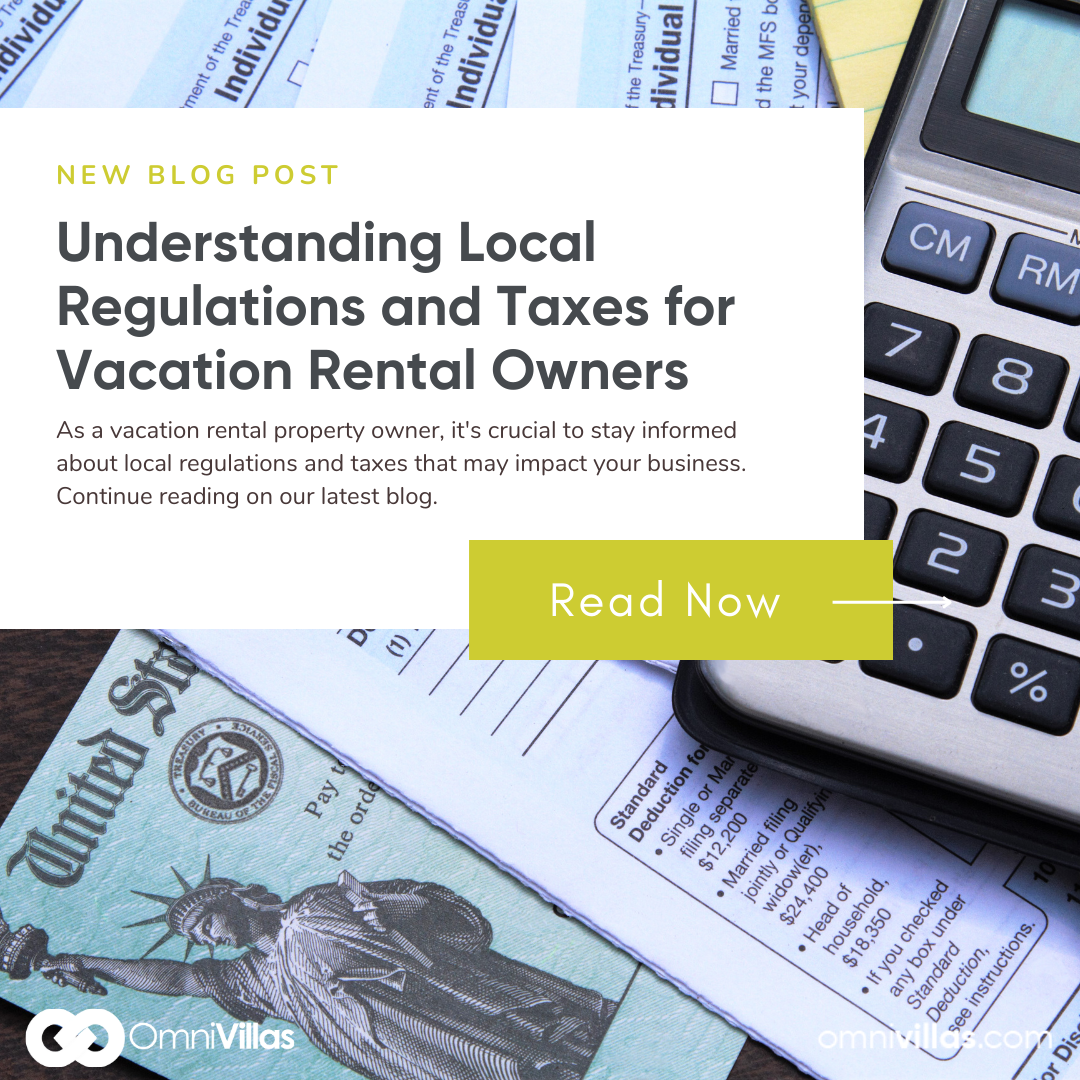Introduction:
As a vacation rental property owner, it’s crucial to stay informed about local regulations and taxes that may impact your business. Navigating these rules can be complex, but it’s essential to ensure compliance and avoid potential fines or penalties. In this post, we’ll provide an overview of key areas to consider, including zoning laws, permits, and taxes for vacation rental owners.
If you’re looking for personalized guidance and support, feel free to contact us to discuss your specific property and learn how expert assistance can make all the difference.
1. Zoning Laws and Land Use Regulations:
Zoning laws and land use regulations vary by location and may dictate where vacation rentals are allowed to operate. It’s essential to research the specific regulations in your area to determine if your property can be used as a short-term rental. Some jurisdictions may also require special permits or impose restrictions on the number of days a property can be rented out.
2. Business Licenses and Permits:
Many cities and towns require vacation rental owners to obtain a business license or permit before renting out their property. These requirements may vary based on the location and size of your rental. Be sure to research the necessary licenses and permits for your area and keep them up to date to remain in compliance.
3. Occupancy and Safety Regulations:
Vacation rental properties must meet certain occupancy and safety regulations, which can include fire safety measures, building codes, and accessibility requirements. Familiarize yourself with these regulations and make any necessary modifications to your property to ensure it complies with local standards.
4. Noise and Nuisance Ordinances:
Many communities have noise and nuisance ordinances in place to maintain a peaceful living environment for residents. As a vacation rental owner, it’s your responsibility to ensure your guests comply with these rules. Consider implementing a “good neighbor” policy and providing guests with clear guidelines regarding noise levels, parking, and other potential concerns.
5. Short-Term Rental Taxes:
Vacation rental owners are typically required to collect and remit short-term rental taxes, such as occupancy taxes or transient lodging taxes. These taxes may be charged at the city, county, or state level and can vary depending on your location. Ensure you’re aware of the specific tax requirements for your area and incorporate them into your rental pricing.
6. Insurance Considerations:
Vacation rental properties often require specialized insurance coverage to protect against potential risks and liabilities. Research the insurance requirements for your area and consult with a knowledgeable insurance agent to ensure your property is adequately covered.
7. Staying Updated on Local Regulations:
Local regulations and taxes can change over time, so it’s important to stay informed about any updates or modifications. Regularly review local government websites, join industry associations, or subscribe to newsletters to keep up to date with the latest developments.
Conclusion:
Understanding and complying with local regulations and taxes is essential for the success of your vacation rental business. By familiarizing yourself with zoning laws, permits, safety regulations, and tax requirements, you can ensure your property operates within the boundaries of the law and avoid potential fines or penalties.
Stay proactive in staying informed, and don’t hesitate to contact us for expert advice tailored to your property’s unique needs.



